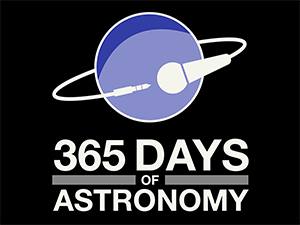The #DailySpace brings you the universe at 10am PST / 1pm EST / 5pm GMT on twitch.tv/CosmoQuestX. Today’s #spacenews includes the following stories:

SpaceX Cargo Dragon FINALLY launched on July 25 @ 22:01 UTC
(Launch on the 24th was aborted because of weather)
Wait, why was this pushed back? The static fire test was successfully completed on its 1st try, but the date of that test was pushed back repeatedly to Friday evening (20JUL, less than 12 hrs prior to launch) for unannounced reasons
- https://spaceflightnow.com/2019/07/19/falcon-9-rocket-test-fired-ahead-of-station-cargo-launch/
- https://www.nasaspaceflight.com/2019/07/falcon-9-static-fire-test-crs-18/
NASA has a vested interest in this particular booster, it would seem: “Quite frankly, [NASA] had a vested interest in this particular booster. We were gonna require it – the intent is to [reuse B1056 on SpaceX’s upcoming CRS-18 launch] and – potentially – CRS-19.”
Kenny Todd, ISS Operations and Integration Manager, NASA Johnson
“Not only will NASA fly Cargo Dragon’s CRS-18 mission on B1056, but the agency is already actively considering reusing the same Falcon 9 booster – assuming a successful launch and landing next week – on CRS-19, SpaceX’s second-to-last Dragon 1 (i.e. Cargo Dragon) launch. If all goes well with CRS-18, CRS-19 could come as early as December 2019, while CRS-20 – likely Dragon 1’s last launch ever – is scheduled no earlier than March 2020 and could certainly make use of B1056.3 if NASA is interested.”
EXPERIMENT INFO BELOW:
From the SpaceFlightNow article: A habitat carrying 40 female mice will also launch inside SpaceX’s Dragon spacecraft. The capsule will return to Earth with 30 of the mice to Earth after approximately a month in orbit, and specimens from the mice will distributed to medical and biological researchers to investigate how spaceflight affected the animals.
The other 10 mice will remain on the station to undergo longer exposure to microgravity.
This is in addition to the new docking ring & a bunch of other experiments that, as always, are too numerous for our streams to mention.
I just watched a video that had that as one of the 3 experiments they talked about. The other two were the silica crystal experiments by Goodyear and something about an automated bio-printer (made by Techshot) that will be making “cardiac-like tissue” which, when strong enough, will come back to Earth for testing. https://youtu.be/palaPtowpIU
“More payloads than we’ve ever sent on a single mission.” – ISS Nat’l. Labs
It’s a lot. Waaaay too much to mention. I’ll probably share the link in chat for those that want to read more about it.
CHECK THIS OUT
- https://www.issnationallab.org/press-releases/spacex-crs-18-mission-overview/
NICKELODEON IS SENDING UP AN EXPERIMENT. ON SLIME. I’m not joking. ADIDAS IS SENDING UP SOCCER BALLS
Among other supplies, experiments & hardware being delivered is a third docking adapter ring to be mounted on the ISS to accommodate future US Commercial Crew vehicles.
“As its numerical designation suggests, IDA-3 is the third of the International Docking Adapters. The IDA’s are built in order to convert the older shuttle era Androgynous Peripheral Attach System-95 (APAS-95) style docking systems on the ISS’s Pressurized Mating Adapter-2 and 3 (PMA-2 and PMA-3) docking ports, into the newer International Docking System Standard (IDSS) style.”
The adapter will be installed via the Canadarm.

iSpace launched Hyperbola-1 on 25 July @ 05:00 UTC
IT WAS A SUCCESS!
StarCraft Glory Space Technology launched Hyperbola-1 with NO LIVE VIDEO. It’s China, there’s never live video.
星际荣耀空间科技 – Early Stage Venture that raised all of it’s own money independently — not from a parent govt company/entity
And because it’s a China launch, there’s rocket debris (far right photo). I have no idea where this landed.

Roscosmos Meridian-M No18 30 July
Launching in just over 24 hours, @roscosmos will be launching the Meridian-M No18 Communications satellite aboard the Soyuz rocket.#soyuz #Meridian #Roscosmos pic.twitter.com/XfQKB3orZR
— gbarrett33@gmail.com (@GeoffdBarrett) July 29, 2019

Russian Military Blagovest-14L on Proton-M – 5 August @ 21:55 UTC
NO LIVE VIDEO EXPECTED
The launch had been pushed back multiple times. Why? Not a clue. Couldn’t quickly find an answer and because it’s the Russian Armed Forces, I don’t expect to be able to find a reason.

Blagovest-14L, military communications satellite. It’s the last of 4 to create the Blagovest constellation.
 SpaceX Amos-17 on Falcon 9 – 3 August @ ????
SpaceX Amos-17 on Falcon 9 – 3 August @ ????
- https://en.wikipedia.org/wiki/Amos_(satellite)
- https://space.skyrocket.de/doc_sdat/amos-17.htm
- http://www.amos-spacecom.com/satellite/amos-17/
AMOS-17 getting ready to be packed into the fairing.
Why 17? It’ll be stationed at 17° East.
It’s a communications satellite owned by Spacecom and made by Boeing. It will provide coverage mainly to Africa, but also to Europe and the Middle East.

Arianespace Intelsat 39 & EDRS-C on Ariane 5 6 August @ 19:30 UTC
- https://space.skyrocket.de/doc_sdat/intelsat-39.htm
- https://space.skyrocket.de/doc_sdat/edrs-c.htm
- http://www.arianespace.com/press-release/flight-va249-arianespace-will-orbit-intelsat-39-and-edrs-c-with-ariane-5/
- https://en.wikipedia.org/wiki/List_of_Intelsat_satellites#Recent_spacecraft_(since_2009)
 Intelsat 39 is ANOTHER communications satellite for, you guessed it: Intelsat. It will be stationed at 62 degrees East longitude position to replace the Intelsat 902. 902 was launched in 2001 and had a lifespan of 13 years. It’s currently 2019. This satellite has operated for 5 years beyond its expected lifetime.
Intelsat 39 is ANOTHER communications satellite for, you guessed it: Intelsat. It will be stationed at 62 degrees East longitude position to replace the Intelsat 902. 902 was launched in 2001 and had a lifespan of 13 years. It’s currently 2019. This satellite has operated for 5 years beyond its expected lifetime.
This launch carries a BUNCH more on it for Intelsat, given the loss of IS-29e earlier this year.
There are still people using IS-902 but they’ll prolly get moved to the new bird once it gets validated in its orbital slot. Sometimes these old satellites are then moved to other, less desirable spots (lower population/land mass, inclined orbits, etc.) to get those last few dollars of subscription out of them, but this one’s pretty old so she’s probably headed for a graveyard orbit once IS-39 is online.
Also, EDRS-C is more of a military/govt. Satellite which is also launching w/IS-39. That one will, among other services, allow LEO satellites (such as earth-imaging, etc.) to communicate back to the appropriate ground station, even if the LEO sat is beyond visual range of said downlink station. This is done via laser links up to the GEO EDRS-C satellite which will then beam it to the ground.
The laser link system is similar to what SpaceX is planning for Starlink, although those will use multiple hops sometimes to get to those ground stations instead of jumping up to GEO & back down.
 ULA AEHF-5 on Atlas V
ULA AEHF-5 on Atlas V
First delayed from June 27th, then July 17th, and now 8 August @ ????
1st delay: due to a vehicle battery failure discovered during final processing
2nd delay: due to an anomaly during component testing at a supplier which has created a cross-over concern
2 hour launch window
Live stream link: https://www.youtube.com/watch?v=umKLZlYM1eU
Atlas V in 551 configuration (5 SRBs, 5 m fairing + 1 upper stage Centaur motor) – this is the 10th launch in this configuration & the 80th Atlas V launch overall since the 1st one in 2002
Launching “Advanced Extremely High Frequency” satellite #5 –> AEHF-5 for the Air Force!
“AEHF satellites provide highly-secure, jam-proof connectivity between U.S. national leadership and deployed military forces.”
This is the 5th of 6 satellites for the constellation
- https://news.lockheedmartin.com/2018-05-21-Lockheed-Martins-Fifth-AEHF-Protected-Communications-Satellite-Completes-Launch-Environment-Test
- https://www.lockheedmartin.com/en-us/products/aehf.html This link indicates that the cost savings over the course of the block buy by the USAF saved them the cost of at least one brand new, built from scratch high-capability satellite, or else perhaps 1 – 2 off the shelf models including launch costs, for preference. Not too shabby! No wonder it won an award.
- https://www.ulalaunch.com/missions/atlas-v-aehf-5
- https://en.wikipedia.org/wiki/Extremely_high_frequency The USAF application overcomes some of the down sides listed in the Wiki article via power, modulation & forward error correction schemes, as well as various spectrum usage techniques that ensure that interference seen in one place at one moment may not interfere with All frequencies at All moments. Also, the higher frequencies mean smaller antennas can be used, which means greater weight/cost savings in hardware for certain links which are much more mobile than in the past.
 We’ve talked a bit about this mission before. As a refresher, the AEHF-5 is the 5th of 6 satellites that will provide encrypted communication channels to the US military. Faster speed, more bandwidth, more coverage.
We’ve talked a bit about this mission before. As a refresher, the AEHF-5 is the 5th of 6 satellites that will provide encrypted communication channels to the US military. Faster speed, more bandwidth, more coverage.
The AEHF constellation is integrated and is backwards compatible with another constellation known as Milstar.
Each one has a lifetime of 14 years, and the first one went up in 2010. AEHF-4 went up nearly a year ago.
Image from: https://spacenews.com/usaf-sees-minimal-mission-impact-with-aehf-4-satellite-launch-delay/
And now for an update on older spacecraft and satellite news:
Back in early April, Intelsat 29e experience an anomaly. Something happened to the propulsion system that caused damage. Propellant leaked, satellite was unable to function properly, and there was a service disruption to customers. Less than 2 weeks later, 29e was declared a total loss.
So, what happened? The investigation narrowed it down to two possibilities:
1) a harness flaw in conjunction with an electrostatic discharge event related to solar weather activity
2) impact of a micrometeoroid
Why does this matter?
Intelsat took a huge financial hit.
- https://spaceflightnow.com/2019/07/30/investigators-conclude-external-forces-killed-an-intelsat-satellite-in-april/
- https://space.skyrocket.de/doc_sdat/intelsat-29e.htm
Join us tomorrow for more Daily Space news – and keep














